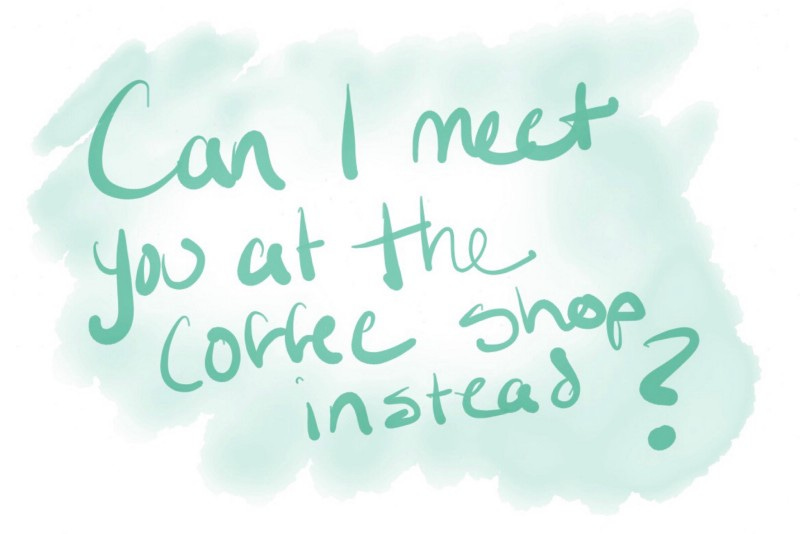Game Time Notifications: Solving for last-minute event changes

Here’s a scenario you might be familiar with:
You wake up groggy from an all-too-early alarm, hustle to get showered and out the door on time, only to wait forever eventually realizing who you’re meeting with isn’t showing up. It never occurred to you to check your inbox which had some permutation of:
“Hey, I’m running behind…”
“Sorry but something came up…”
“Which Sightglass location did you mean?”
The email was there all along, you just didn’t see it because you didn’t check, you don’t get notifications, or the relevant email was buried deep. You might have been able to take a little extra time, or possibly avoid the wrong location snafu.
The one good use for email notifications
If you’re anything like me, you turned off email notifications a long time ago. The fact is that email is a constant and so the value of individual email notifications is next-to-nothing unless something is urgent, in which case you might turn them on.
But as the above situations lay out, there are instances where getting that email at the right time is critical and might save embarrassment, or an unnecessarily rushed run-around. The last-minute emails referring to an upcoming meeting have certainly happened to me, and I’ve done it to others (unfortunately). Like most people I don’t have anyone else helping me manage my schedule and therefore I’m the sole responsible party for it. To make matters worse, in most instances the only contact information I might have for that person is email, and not something more direct such as a number to text.
I can’t count how many times some sort of last-minute issue has happened to me. Every single time it’s frustrating, sometimes embarrassing, but almost always an added but unnecessary stress. There may be a solution here though, one that can leverage the recent strides in machine learning and the addition of artificial intelligence to our inboxes.
Game time notifications
Sometimes during a game, coaches or captains might make snap judgements to change a play, swap players, etc. in the interest of the right next move. Those game time decisions can be critical in turning the tide of something that might not be going your way.
So what if we had a mechanism whereby last-minute information that’s relevant to something in our calendar could reach our attention in a timely manner? Finding a way to let some email notifications without opening up to all of them is worth exploring.
With a modern email tool such as Google Inbox, some of the building blocks are already there: the events, the emails, the intelligence layer (think Quick Replies in Inbox). So with all this in consideration my idea is this:
Calendar is aware of your upcoming meetings
Inbox keeps watch for emails from or regarding someone who you might be meeting with soon (let’s say in the next 24 hours)
Upon receiving an email referencing an upcoming meeting, a “game time” notification is received prompting attention to the potential change or inquiry
In theory, it really is that simple. Granted, there are so many nuanced situations when you dig a few levels deeper, but on the surface something like this could be quite useful for many. The idea that my inbox could quickly notify me to potential changes for an event taking place very soon is appealing.
One of many
This is just one of many potential solutions for the problem above, but it seems like it would be effective without needing to teach many new user patterns. Using algorithmic sorting on an inbox could be another solution, surfacing time-sensitive emails above all others. However, a solution such as that might be a lot more work, including on the user to learn how it would be used.
When building products or features we must try to balance their potential impact with their difficulty to build, and ultimately risks that may come along with them. That’s why it may be more prudent to build a simple solution like game time notifications vs. a potentially more useful, but for sure more complex one.
Thanks for reading! Feedback is always welcome… I’d love to know what you think about this feature, or other ways to solve this problem.



